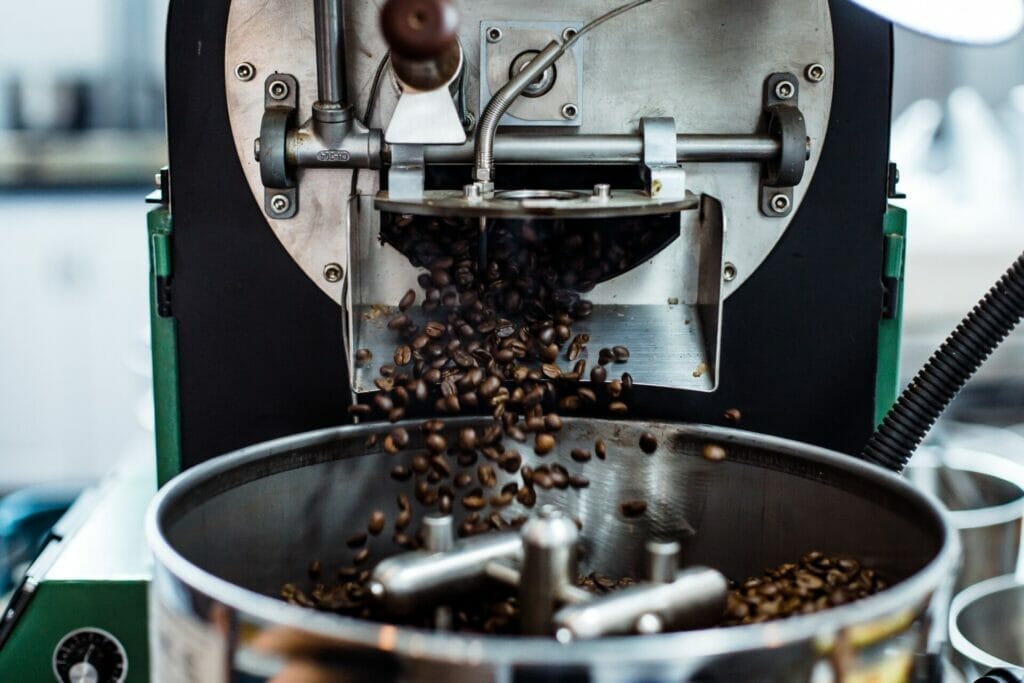Why Does Coffee Give Me Diarrhea?
It could be because caffeine is a stimulant of your intestinal muscles, which can make them contract more than usual, leading to increased watery intestinal secretions and causing diarrhea. Furthermore, coffee often contains high levels of acidity, and consuming a large amount at once can irritate your digestive tract lining, further contributing to feeling unwell.
Coffee may also contain certain substances that we don’t fully understand yet. Some research has suggested that there are unidentified compounds in coffee grounds that can stimulate our digestive system and cause diarrhea symptoms in some people.
Finally, how our bodies process coffee beans varies from person to person. Some people may be naturally more sensitive to coffee components than others, meaning they are more likely to experience discomfort after drinking coffee.
So if you’re someone who gets the runs from coffee – it’s not just you! Several potential factors could contribute to this uncomfortable feeling. Consider reducing the amount of caffeine or switching up your brew type for a different experience instead.
Should I Stop Drinking Coffee If It Gives Me Diarrhea?
If you’ve been suffering from coffee-related diarrhea, it’s probably a good idea to stop drinking coffee. Not only will coffee irritate your digestive system and cause diarrhea, but it can also lead to dehydration if you’re not careful.
You can try to avoid coffee altogether if the side effects are too much for you, or look into options that might make your beverage less irritating, such as cold brews, espresso shots with milk, or switching up your roast of choice. You could also go caffeine-free and consider decaf or herbal tea alternatives.
Although diarrhea is never fun, if it’s due to coffee there is no need to worry about any serious health issues—you just have some gastrointestinal discomfort. Ultimately the decision about whether or not to stop drinking coffee comes down to how much the issue affects your daily life. If it’s taking too much of a toll on you, then maybe it’s time for a break from java!

Does Coffee Effect IBS?
Although coffee does not cause IBS, it can aggravate existing symptoms for some people. Caffeinated beverages can increase stomach acid production and sometimes lead to abdominal cramps and nausea. They may also worsen diarrhea because of their dehydrating effect on the body. Additionally, drinking coffee on an empty stomach can cause further discomfort due to its stimulating nature.
For those who already suffer from IBS symptoms, it might be best to consider eliminating coffee from your diet or at least reducing the amount you consume each day. There are many other ways to stay energized without coffee that do not include the potential negative effects that come along with it when suffering from digestive issues like IBS.
What is IBS?
IBS, or Irritable Bowel Syndrome, is a common digestive issue that affects millions of people every year. While there are many treatments available to help manage IBS symptoms, it’s important to know if common foods or drinks can worsen the condition. One drink, in particular, that may be causing problems for some people with IBS is coffee.
Reasons Why Coffee Worsens IBS Symptoms?
1. Increasing The Rate At Which Our Bowels Move
Caffeine can increase the speed at which our bowels move, and this could worsen IBS symptoms. For people who are already prone to bowel problems, having their bowels move faster can lead to increased gas production, as well as painful cramps and spasms.
This could be very uncomfortable for those with IBS who are trying to manage their digestive health with diet. Caffeine also increases stomach acidity, which can further irritate the small intestine and colon and contribute to IBS-like symptoms.

2. Increasing The Production Of Stomach Acid
Coffee can worsen the symptoms of IBS by increasing the production of stomach acid. This increase in stomach acid production can cause a range of gastrointestinal issues, including abdominal pain, cramping, diarrhea, and bloating.
This is because when too much gastric acid is produced, it results in an imbalance that can lead to digestive discomfort and inflammation. If you’re someone who suffers from IBS and often drinks coffee, it’s important to monitor how coffee affects your collection of symptoms as it may be best for you to avoid or reduce your intake.
3. Boosting The Stress Response
Coffee may worsen mild symptoms of Irritable Bowel Syndrome (IBS), particularly if the person drinking it is already under stress. This is because the caffeine in coffee activates the body’s “fight or flight” response and encourages the production of hormones such as cortisol, which promote stress and arousal.
As IBS is often linked to psychological stress, this can exacerbate existing symptoms and make them worse. Additionally, coffee can be a diuretic that interferes with mineral and electrolyte balance, as well as decreasing gastric acid production which can lead to indigestion – all contributing to an overactive stress response.
4. Coffee Contains Salicylates
Coffee contains salicylates, which are organic acids found naturally in many plants. They can also be a component of some synthetic preservatives and flavorings. Those with IBS often find that consuming anything containing salicylates aggravates existing not-so-fun symptoms, such as cramping, abdominal pain, gas, bloating, and diarrhea.
Caffeinated coffee is known to contain more salicylates compared to decaf coffee or tea, therefore making it more likely to cause IBS flare-ups. As such, avoiding or limiting caffeinated coffee consumption is recommended for those suffering from IBS symptoms.

How Can The Harmful Effects Of Coffee Be Countered?
Coffee can be a great source of energy, concentration, and happiness. However, it can also have some unpleasant consequences if too much is consumed. Avoid these negative effects, there are various ways to counteract them.
Reduce Your Coffee Consumption
If you’re looking to counter the harmful effects of coffee intake, one good solution is to reduce your consumption. Cutting down on how much coffee you drink each week can help combat negative side effects like sleeplessness, jitteriness, and headaches. Start slowly by reducing the amount of coffee you drink every few days until you reach a more manageable quantity.
Coffee Should Not Be Consumed On An Empty Stomach
Although the coffee plant does have its benefits, it can also cause some unpleasant and even harmful side effects when taken too often or when consumed on an empty stomach.
When consumed on an empty stomach, decaffeinated coffee will increase stomach discomfort like acidity and irritability, leading to heartburn and digestive symptoms. Additionally, the caffeine content in coffee can interact with medications, leading to serious health problems – such as increased blood pressure or irregular heartbeat.
Extras Should Be Avoided
It’s no secret that coffee has certain harmful effects. However, there are a few things you can do to counteract them. Firstly, it’s important to avoid any ‘extras’. This means refraining from adding sugar, cream, or syrups to your coffee; these will only add extra calories and can be detrimental to your health.
Additionally avoiding types of coffee like frappuccinos or lattes can help too since these are often loaded with sugar and contain far fewer of the beneficial compounds found in black coffee. Keep your coffee simple and stick to espresso or filtered brews for the best results.
Is Coffee A Cause Of Acid Reflux?
When it comes to the question of whether or not coffee is a cause of acid reflux, research has yielded inconclusive results. Coffee can be a trigger for those who experience gastroesophageal reflux disease (GERD), but it isn’t the only factor causing this condition.
Other factors such as diet and lifestyle that could contribute to an individual’s tendency to suffer from GERD include obesity, smoking, eating too quickly or eating acidic foods, drinking certain alcoholic beverages, and pregnancy.

Is Milk Necessary In Your Coffee?
The milk debate is a hot topic when it comes to coffee. Some people think that milk is essential in order to create the perfect cup of coffee, while others prefer an espresso or black blend with no milk at all.
When it comes down to it, there’s no right or wrong answer – the decision to include milk in your coffee is completely up to you. If you prefer a creamy and sweet-tasting blend that utilizes dairy products, then go for it! On the other hand, if you like your brew bold and full-bodied without using any type of dairy product, then there’s nothing wrong with that either.
At the end of the day, what matters most is that you find exactly what makes your cup of joe delicious – with or without milk!

